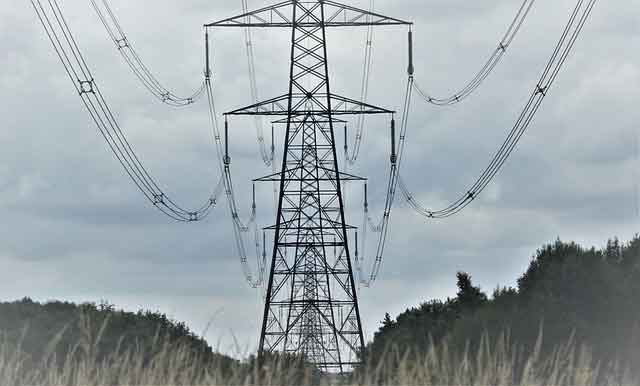A tussle over Edison plant
SANTA CATALINA ISLAND, CALIFORNIA - Reporting from Avalon, Santa Catalina Island - Southern California Edison wants to sell its antiquated water and gas utility on the eastern edge of this quaint harbor community.
That plan has unleashed a torrent of anxiety among ratepayers, who fear that rates would increase sharply and that supplies might be jeopardized. They have organized a consortium to try to take over the operation before it can be sold to a Canadian company.
"If it is sold to an outside company, our rates will go so high we'll all be forced to drink bottled water and quit bathing," said Norris Bishton Jr., president and representative of the town's Hamilton Cove Homeowners Assn. "Ain't gonna happen. Island ratepayers will object to a sale."
The power company, based across the water in Rosemead, is entertaining two prospective bids for the gas and water business, which Edison has valued at $35 million; one is from Corix Utilities Inc. of Richmond, a Vancouver suburb, and another comes from the consortium representing the island's 1,800 ratepayers. Edison intends to continue providing the island's electricity service.
Unloading Edison's only nonelectric utility won't be easy.
Edison executives acknowledge that the system is a complicated relic made of old tanks, pumps and miles of 10-inch pipelines crisscrossing rugged canyon lands between reservoirs and wells and water hookups on the island, about 22 miles off the mainland.
In 2008, San Jose-based California Water Service Co. sniffed around the utility, then priced at about $20 million, but declined to buy it.
The bid from Corix, which has contracted with Edison to install smart electric meters throughout Southern California, has galvanized the island's usually antagonistic stakeholders — environmentalists, commercial fishing operations, hotel and restaurant owners, city officials, private land owners, summer camps — to set aside their differences for the first time in memory.
That's because, island officials say, a sustainable, reasonably priced supply of fresh water is the resource most critical to residents, as well as private land owners and developers planning to build an 18-hole golf course, luxury hotel, restaurants and other amenities.
They are united under the auspices of the consortium composed of the Catalina Island Conservancy, the Catalina Island Chamber of Commerce & Visitors Bureau, USC, a representative of the island's youth camps, the Hamilton Cove Homeowners Assn. and the Santa Catalina Island Co.
The group recently raised $50,000 to hire consultants to study the feasibility of taking control of the utility, then transforming it into a municipal entity designed to provide affordable rates and sustainable supplies and help the island take control of its destiny, according to Bishton and Avalon Mayor Bob Kennedy.
To hear them tell it, the local utility headquartered less than a mile from cobalt blue sport and commercial fishing grounds is overpriced and needs significant infrastructure improvements, the costs of which, they fear, would fall on customers who already pay higher rates than mainlanders.
"Edison says the utility is worth $35 million, but we think, on a good day, it might be worth $5 million," said Kennedy, who owns a scuba diving shop in Avalon. "My goal is to have the community run it. Right now, we don't have the expertise, but we could hire someone who does."
The power company had already raised hackles in Avalon, a seaside community of 3,000 residents and Victorian cottages surrounded by scalloped beaches, lush ravines and steep peaks. A curved, cafe-lined promenade faces glass-bottomed boats and vessels with bright pennants flapping in the breeze.
Bishton recently filed a class-action lawsuit accusing Edison of overcharging island customers.
Ratepayers are forking out monthly fees assigned to 3/4-inch meters, but most meters on the island are only 5/8-inch meters and subject to lower monthly charges, he said.
Edison spokesman Steve Conroy declined to discuss the lawsuit except to say: "There was a clerical error as it relates to billing certain customers on the island inaccurately."
Brett Hodson, president and chief executive officer of Corix, said his company has submitted a "serious bid for the water and gas company" and deposited $1 million in earnest money in a bank designated by Edison.
"We love to work with small to medium-sized communities like Avalon," Hodson said. "Our preliminary assessment is that we like what we see out there. It looks like a well-run system. We will be conducting a determining assessment in the coming months."
In the meantime, Edison is running out of patience with the consortium. In a recent letter to the group, James A. Kelly, Edison's senior vice president of transmission and distribution, requested that it submit a formal bid — and a $1 million good faith deposit — by February 15.
The consortium has done neither.
Instead, it responded with claims that the water system had not been properly developed, maintained or upgraded and could be out of compliance with current regulations. The group also pointed out that any proposed sale would be examined closely by the California Public Utilities Commission with a focus on the interests of the ratepayers.
"We're not trying to start a fight with Edison," said Avalon City Councilwoman Sue Rikalo. "We just want to make our position clear and have a reasonable alternative to offer."
Ron Hite, Catalina region manager for Edison, disputed the consortium's contentions about the water and gas utility's operations.
The utility "is in great shape," Hite said, "partly because we've invested in the infrastructure over the past five to seven years."
Related News

Canada's Electricity Exports at Risk Amid Growing U.S.-Canada Trade Tensions
OTTAWA - In early February 2025, escalating trade tensions between the United States and Canada have raised concerns about the future of electricity exports from Canada to the U.S. The potential imposition of tariffs by the U.S. has prompted Canadian officials to consider retaliatory measures, including restricting electricity exports.
Background of the Trade Dispute
In late November 2024, President-elect Donald Trump announced plans to impose a 25% tariff on all Canadian products, citing issues related to illegal immigration and drug trafficking. This proposal has been met with strong opposition from Canadian leaders, who view such tariffs as unjustified and detrimental…




